برنامج بكالوريوس الأحياء
نظرة عامة
يقدم قسم الأحياء برنامج دراسي يؤدي إلى منح درجة بكالوريوس العلوم في الأحياء. وتم تصميم البرنامج ليقدم من قبل كلية العلوم والآداب بقلوة بجامعة الباحة متماشياً مع الخطة الدراسية مع باقي الكليات المناظرة بمختلف المحافظات التابعة لجامعة الباحة ويساعد برنامج بكالوريوس العلوم في الأحيـــــــــــــــاء الطلاب للعمل في مجالات مختلفة، ويؤهلهم لتطوير مهاراتهم العلمية والعملية. كما يعدهم لمواصلة دراساتهم العليا والبحث في مجالات علوم الحياة المختلفة>
يتكوّن البرنامج من 133 وحدة دراسية معتمدة موزعة على ثمانية مستويات (أربع سنوات دراسية) ويتوجب على الطالب الملتحق بهذا البرنامج أن يتم بنجاح (133) وحدة دراسية معتمدة حسب الخطة الدراسية.
أهداف البرنامج
• الريادة العلمية والأكاديمية في علوم الأحياء.
• إعداد كوادر متخصصة في مجال علوم الأحياء تسهم في نهضة المملكة العربية السعودية وتحقق رؤية 2030.
• توفير بيئة للتعليم والتعلم المستمر.
• إعداد الطلاب/الطالبات لمواصلة الدراسة العليا والبحث في مجال علوم الحياة.
• تزويد الطلاب/ الطالبات بالمهارات المهنية الأساسية والتقنية والأكاديمية الكافية لتؤهلهم للعمل في مجالات مختلفة وسد الفجوة بين مخرجات التعلم واحتياجات سوق العمل.
• المساهمة في التطورات العلمية في المجالات الحيوية من خلال البحث العلمي ومتابعة التطورات في علوم الحياة.
نواتج تعلم البرنامج
| بنهاية هذا البرنامج سيكون الطالب قادراً على: | ||
| المعرفة | ||
| K1 | يذكر المبادئ والنظريات الأساسية المتعلقة بالعلوم البيولوجية وتصنيف الكائنات الحية على أسس علمية | |
| K2 | يتعرف على الموضوعات الجمالية والآثار الأوسع للتطبيقات البيولوجية العلمية المتقدمة وتأثيرها على المجتمع والبيئة | |
| K3 | يعرف الطرق والتقنيات والأجهزة المستخدمة في مجال العلوم البيولوجية | |
| K4 | يفهم المبادئ التصنيفية للكائنات الحية. زيذكر مسببات الأمراض الطفيلية والميكروبي، الوقاية، والسيطرة والتشخيص وشرح الطرق المختلفة للاستجابة المناعية. | |
| المهارات | ||
| S1 | يشرح دور العلوم المختلفة في تفسير العمليات البيولوجية في الكائنات الحية وتقييم المشاكل في مجال العلوم البيولوجية ووضع الحلول المناسبة باستخدام طرق مختلفة للتفكير والتحليل العلمي | |
| S2 | يعد تحضيرات مجهرية لكائنات حية بشكل صحيح وأيضا يطبق بعض التقنيات الحديثة في البيولوجيا الجزيئية. أيضا يصيغ البيانات البيولوجية المختبرة ويختار الآلية المناسبة لوضعها ضمن إطار نظري. | |
| S3 | يتنبأ بمصادر التلوث البيئي وآثار تلك الملوثات على الكائنات الحية بما في ذلك الأمراض المرتبطة باختلال الأعضاء في هذه الكائنات. بالإضافة إلى ذلك، يحلل ويقيم القضايا التي تؤثر على البيئة والصحة العامة والاعتبارات والأخلاقية. | |
| S4 | يعمل بفعالية في العمل الجماعي وأيضايأخذ المبادرة في السعي للحصول على مزيد من المعلومات أو الموارد اللازمة للاضطلاع بالمسؤوليات | |
| الكفاءات | ||
| C1 | يستخدم تكنولوجيات الاتصال للاتصال بشكل فعال شفوياً وكتابةً. | |
| C2 | يستخدم الطرق الإحصائية والرياضية المناسبة عند دراسة المشاكل في علم الأحياء لجمع وتفسير وتحليل المعلومات التي تم الحصول عليها. | |
| C3 | يوضح مهارات التشريح الجيدة لبعض الكائنات الحية، بما في ذلك النباتات والفقاريات. أيضا يطبق بعض التقنيات الحديثة في علم الأحياء الدقيقة والبيولوجيا الجزيئية | |
| C4 | يفحص ويرسم رسم دقيق من تركيب الأنسجة النباتية والحيوانية. أيضا يرسم دورة حياة بعض الكائنات الحية | |
الفرص الوظيفية
- وزارة التعليم
- وزارة الصحة
- وزارة الزراعة والبيئة والمياه
- هيئة المواصفات والمقاييس
- مراكز البحوث الطبية
- مراكز بحوث الدواء
- المختبرات الطبية
- الشركات المتخصصة في شئون البيئة
- الشركات المتخصصة في صناعة الدواء
- الشركات المتخصصة في صناعة الأغذية
الخطة الدراسية
الخطة الدراسية لبرنامج الأحياء

